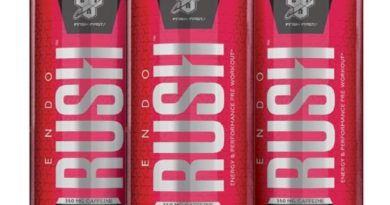Proprietary Blends vs Full Transparency: Who Wins?
I’m going to get a lot of love and hate from both sides of the spectrum revolving around this issue. There will be people who demand full transparency such as the consumer and brands who want to be upfront and honest with what they put in the product and then, on the other hand, you will have the people who don’t want to give up their special sauce (formula) for competitors to copy and sell against them. So, in the end, who truly wins from a proprietary blends and full transparency battle to the death? I’m not even sure we have a clear winner.
*Disclaimer: This article is my own opinion on the subject and represents my personal thoughts and feelings. I have been on both the consumer side as well as the manufacturer side, so I feel I have a good perspective.

The Champion: Proprietary Blends
For decades supplement companies have been protecting their profiles and formulations by utilizing proprietary blends. I am both for and against the use of such – let me explain since it sounds like I’m talking out of both sides of my mouth.
The reason I am FOR proprietary blends is the fact that I don’t want to see a bunch of “me too” products out on the market that contain the same ingredients, the same dosages, etc. I want brands to protect their formulations from brands who can’t come up with an original thought from their entire staff. Some brands don’t even hire real formulators, their whole business model is to steal formulas from other brands and release the same product only at a lower cost. Honestly, that pissed me off. If a brand spends good money to educate consumers on a new ingredient or formulation and then everyone else can steal it and create the product, well, they just saved those brands a ton of money by not needing to pay to educate their own – the content is ultimately repurposed for their brand too. We see this a lot with pre-workouts. I think brands should have the right to protect their formula from shady businesses. But, how do we even know what’s in the product? Which leads me to my next point of view.
The reason I am AGAINST proprietary blends is that I want to know exactly what I’m putting in my body. I feel I should have the right to that information and to know. Now, there will be people who say to just not buy the product if you aren’t comfortable with it. Sure, I agree and that’s a valid point. But that could also cause the brand using a proprietary blend to lose money on consumers who want to know. In the end, it’s almost a damned if you do, damned if you don’t scenario – and one I certainly wouldn’t want to be in.
Who wins? Hell, if I know? It’s truly a personal answer for each individual on what you believe is right. For me, I battle with if brands should be able to use proprietary blends. If I had my own brand and I paid good money to have an awesome formulation put together, I’d be pissed if I had to explain exactly what’s in it and in what dosages just so that a competitor could do the same thing and try to knock me off. Then when I put the shoe on the other foot, I want to know what I’m putting in my body and if I’m getting an efficacious dose or something fairy dusted.
Which side are you on? Are you ok with proprietary blends or do you want to know the formula and what you are putting into your own body? This would make for an awesome dialogue down in the comments.
Click here to continue reading…


*Disclosure: This article may contain affiliate links or ads, which means we earn a small commission at no extra cost to you if you make a purchase through these links. These commissions help support the operation and maintenance of our website, allowing us to continue producing free valuable content. Your support is genuinely appreciated, whether you choose to use our links or not. Thank you for being a part of our community and enjoying our content.
PLEASE CONSIDER SHARING THIS ON YOUR SOCIAL MEDIA TO HELP OTHERS LEARN MORE ABOUT THIS TOPIC.





